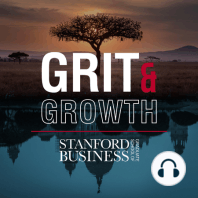42 min listen
Profiles of Purpose: A Fundamental Right
FromGrit & Growth
ratings:
Length:
8 minutes
Released:
Jan 4, 2022
Format:
Podcast episode
Description
Meet Sriram Gopal, founder and CEO of Future Farms, a hydroponics company on a mission to deliver clean, healthy food to all Indians. With a trillion dollar market potential and a vision to make clean food a fundamental right, not a privilege, Sriram is growing his company for a greater good.Sriram always wanted to be an entrepreneur because his father was one, too. Motivated by his role model, Sriram set out to build a business that would also create an impact. Hydroponic farming seemed to be a perfect solution, saving 90% more water than traditional farming and protecting people from pesticides, bio toxicity, and heavy metal contaminants. “The main reason why we do this is because in India there are no mechanisms to check where the food comes from and it can be very, very, contaminated. People can choose organic food, but they're paying like three times more. What it actually means is only people who can afford to pay three times more, can actually have access to clean food. And to me that just feels wrong because I think clean food is not a privilege. If anything, it should be a fundamental right.”Future Farms didn’t become the largest hydroponic and controlled-environment agriculture technology company in India overnight. Like most startups, it happened one small step at a time — from building small hobby kits with his father to creating rooftop farms and quarter acre commercial farms. Sriram has set his sights beyond India, expanding his greenhouses and technology to Nepal, Bhutan, Thailand, and Singapore…so far. “I want to grow a company that is global and that creates a lot of good. And if our technology works in India, I'm pretty sure it will work in all the other parts of the world where people are still struggling.”Listen to Sriram’s mini profile to learn how doing the right thing for people can be the right thing for your business, too.To participate in Grit & Growth’s paid focus group, visit http://stanfordseed.co/podcastsurveySee Privacy Policy at https://art19.com/privacy and California Privacy Notice at https://art19.com/privacy#do-not-sell-my-info.
Released:
Jan 4, 2022
Format:
Podcast episode
Titles in the series (74)
Masterclass on Early-Stage Financing by Grit & Growth
